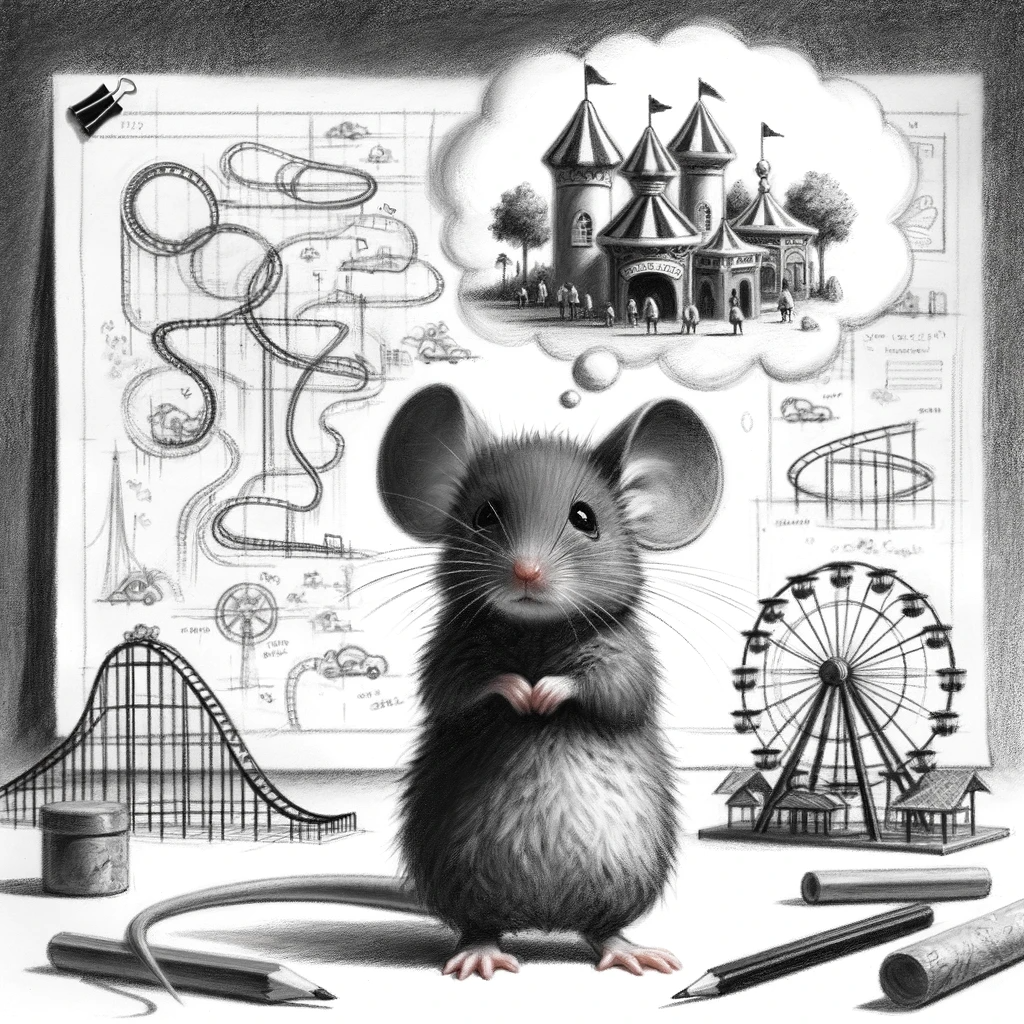This morning, I had a realization. For much of my life, I hadn’t been thinking big enough. As I pondered this, I wondered whether I had encouraged my children to dream big as they grew up, or if I had inadvertently limited them with my own fears and concerns about potential barriers. Growing up, my parents and grandparents always pushed me to do my best. They believed in me and assured me that I could accomplish anything I set my mind to. Yet, there were boundaries. These limits weren’t their fault; they were a product of their upbringing, their environment, and their experiences. It’s clear that our starting point in life greatly influences our ability to imagine what’s possible, as well as our readiness to tackle challenges that might appear risky or unconventional.
As we age, we gain the chance to build upon what previous generations deemed possible. Our imaginations can stretch farther, and we can explore new horizons. This potential to expand is a precious gift in our fleeting lives, but despite this, many of us still hesitate to think big. Why is this the case? There are several factors at play, and it’s worth delving into a few of these reasons to understand better.
One significant barrier to thinking big is the fear of failure. This fear can be paralyzing, making the prospect of taking risks or stepping into the unknown seem daunting. Many people worry about the consequences of failing, such as embarrassment, financial loss, or disappointing others. These worries can overshadow the potential benefits of pursuing a big dream. Instead of seeing failure as a step toward success or a learning opportunity, it’s often viewed as a final, negative verdict on one’s abilities. This mindset can keep people stuck in their comfort zones, hindering them from aiming for larger goals and embracing the growth that comes with facing challenges.
Limiting beliefs act as another major roadblock in our journey to think big. These are the deep-seated convictions we hold about our abilities, potential, and what’s achievable, often ingrained from a young age. These beliefs can create an invisible cage, confining our aspirations and blinding us to opportunities. If we believe we’re not smart enough, not resourceful enough, or simply that big dreams are unrealistic, we’re less likely to set ambitious goals. Instead, we might settle for what we think is attainable, not realizing that our potential is much greater. Breaking free from these limiting beliefs is essential for expanding our vision and embracing the possibilities that lie beyond our current scope.
Staying in our comfort zone is a major factor that hinders our ability to think big. This zone represents the familiar and safe routines of our daily lives, where everything is predictable and risk-free. Venturing beyond this zone means facing uncertainty and potential discomfort, which can be intimidating. As a result, many prefer to stick to what they know, even if it means missing out on significant opportunities for growth and achievement. The comfort zone might feel secure, but it often limits our potential and keeps our dreams smaller than they could be.
A perceived lack of resources can significantly dampen our willingness to think big. When we believe we don’t have enough money, education, or connections, our goals can seem unattainable. This mindset focuses on scarcity rather than abundance, leading us to underestimate our own resourcefulness and the possibility of acquiring what we need along the way. This perception can keep us from even attempting larger endeavors, as the initial gap between our current state and our big dreams appears too wide to bridge.
Social conformity is another barrier to thinking big. It’s natural to want to fit in and be accepted by our peers, family, and society at large. However, this desire can lead us to downscale our ambitions to match societal expectations or norms. When everyone around us thinks and acts a certain way, daring to envision something radically different can be daunting. The fear of being judged, misunderstood, or isolated for our big ideas can stifle our creativity and suppress our true aspirations.
Facing a lack of support and resources can be a daunting obstacle to thinking big. When we don’t have encouragement from those around us or access to the tools and materials we need, our big ideas can feel more like distant fantasies than achievable goals. The journey to realizing big dreams is often challenging and having a supportive network and adequate resources can make all the difference. Without these, we might feel alone and ill-equipped to tackle the hurdles we encounter, leading us to scale back our ambitions.
An excessive focus on short-term thinking can also restrict our ability to think big. In today’s fast-paced world, immediate results and quick fixes are often prioritized over long-term planning and patience. This mindset can lead us to overlook the big picture and forsake long-term rewards for instant gratification. When we’re caught up in the day-to-day, it’s challenging to step back and strategize for the future. This short-term perspective can keep our thinking small and our actions limited to what provides immediate, but often fleeting, results.
Overcoming limiting thinking to embrace big ideas requires a conscious shift in mindset and approach. Firstly, it’s crucial to cultivate a positive attitude towards failure, viewing it as a stepping stone to success and a chance to learn. Regularly stepping out of your comfort zone and taking calculated risks can also expand your boundaries and build resilience. Surrounding yourself with supportive and like-minded individuals can provide the encouragement and resources needed to pursue larger goals. Challenging your limiting beliefs by questioning their validity and exposing yourself to new perspectives and experiences can also broaden your mindset. Lastly, fostering long-term thinking by setting clear, ambitious goals and breaking them down into manageable steps can guide your focus towards bigger achievements. By adopting these strategies, you can shift away from limiting thinking and unlock the potential to think and achieve big.





I think as we age and look back I think youth can sometimes portray a lack of confidence. For me confidence in myself increased as I grew older. I feel I would have achieved more with the mindset I have now.
Yes, but as we get older we are more practical or perhaps just more tired. Oh the irony. We have the confidence now, but we lack the ambition!